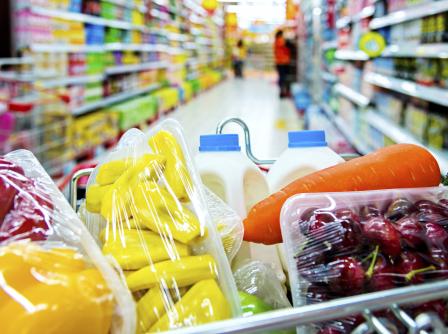November 2019

The most important thing I learned is that food and its related industries (such as agricultural/food production, processing, transportation, consumption, and landfill/post-treatment) make up the largest amount of impact in term of green house gas emission in the U.S. Their impact is even greater than transportation, utilities, and any other kinds of industrial and everyday activities. In other words, by paying attention to food waste and reduce the chances of throwing food away, you will be able to take easy steps and make a huge impact. After all, reducing is more effective than recycling. And the food saved from our daily lives can be used to feed many more who are in food insecurity or have less access to healthy food and nutrition.
Here are east steps you can take:
- Label stuff in your fridge by date or priority (“EAT THIS FIRST”), or rearrange your fridge so you have those you need to eat first in the front row. Every month or so, try clean up your fridge not by throwing things away but by strategically eat up everything in there. When necessary, buy food that can go with your existing stuff accordingly.
- Instead of going on grocery run once a week or even once two weeks, try find housing near a grocery store so you can go many times during the week and pick up less food each time. In this way you will always have fresh produce and it reduces the chance that your food would go bad at home.
- Use 10 seconds each time before you go to the grocery store to take a smartphone picture of your fridge and pantry. This will help you to remember what you really need and reduce the chance of picking up extra items.
- Try frozen food for non-essential use. For example, frozen bread that can last longer, froze berries for your smoothie, or frozen veggie for your stew. This helps you to reduce the chance of throwing away fresh products if you don’t use them within a few days.
- If you work for a department of on-campus unit, try encourage your supervisor to donate left-over food from events/meetings to the local homeless shelter or NGOs. Google “food donation near me” to locate your local organizations and make arrangement with them to donate food. Or do RSVP each time to get a more accurate count of participants so you don’t over order food at the first place.
- Bring your extra food to the office or your student organization and share them. Organize potluck or simple food swap every week or two weeks so you don’t end up having to trash can all the extra food in your fridge.
---Mingqian Liu
Mingqian Liu is a fourth-year doctoral student in the Department of Architecture